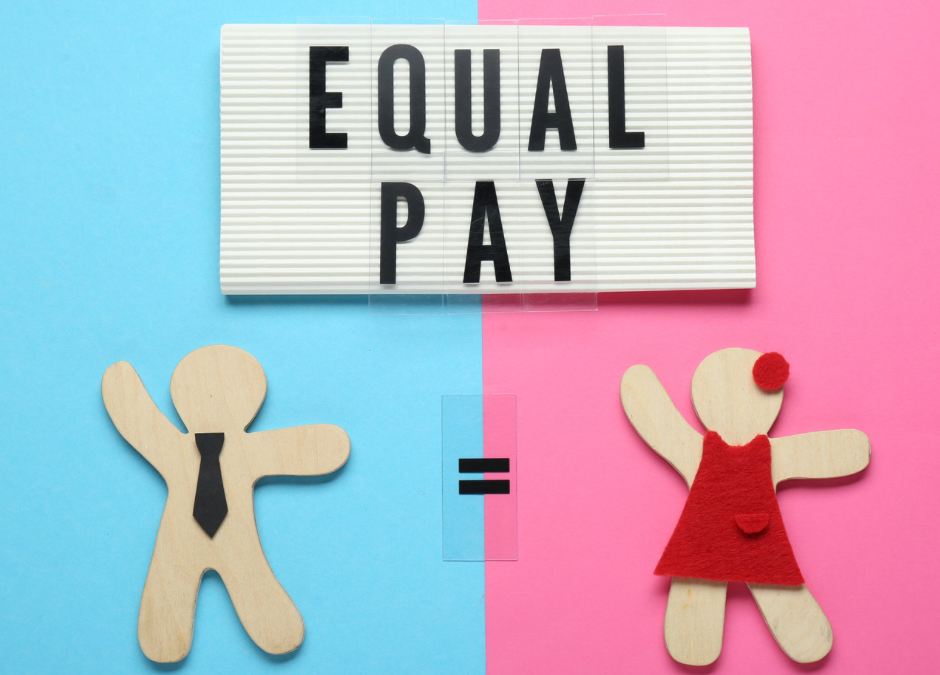
Ending Homelessness
September 6, 2024
The Student’s Choice: Five UK Cities That Offer the Ultimate Student Experience
September 7, 2024By Josmi Saji.
Reading time: three minutes
To raise awareness for International Equal Pay Day 2024, Josmi Saji has provided a detailed legal analysis of the gender pay gap in the UK.
Introduction
International Equal Pay Day 2024, observed on September 18, is a powerful reminder of the ongoing struggle to achieve gender equality in the workplace. Despite significant progress in various aspects of equality, the gender pay gap remains a persistent issue, casting a shadow over the principles of fairness and equal opportunity that international human rights laws are meant to uphold.
Gender Pay Gap Reporting: A Step in the Right Direction
In 2017, the UK government introduced mandatory gender pay gap reporting for all organisations with 250 or more employees. These organisations are required to publish annual reports detailing the pay differences between their male and female employees. This initiative was a significant step forward in promoting transparency and accountability, as it allowed the public to scrutinise companies’ pay practices and encouraged employers to take action to address disparities.
Read this article on the importance of tackling gender disparities in the legal profession: https://thestudentlawyer.com/2024/03/20/closing-the-gender-gap-addressing-issues-and-solutions-in-the-legal-community/
The impact of gender pay gap reporting has been positive. Research indicates that companies subject to reporting requirements have made more progress in closing the gender pay gap than those that are not. By bringing the issue to light, the reporting requirement has placed public pressure on companies to address pay inequalities. Many organisations have responded by conducting internal audits, reviewing pay structures, and implementing initiatives to support the advancement of women within their workforce.
However, while gender pay gap reporting has been instrumental in reducing wage disparities, it has not been enough to eliminate the gap altogether. The fact that four out of five companies and organisations in Great Britain still pay men more than women highlights the need for further action.
The Case for Fines: Strengthening Enforcement of Gender Pay Gap Reporting
One of the major challenges with the current gender pay gap reporting system is the lack of significant penalties for non-compliance. While organisations are legally required to submit their reports annually, those that fail to do so face minimal consequences. This lack of enforcement undermines the effectiveness of the reporting requirements and allows some companies to avoid scrutiny.
Introducing fines for companies that do not meet the deadline for gender pay gap reporting could be a crucial step in strengthening the system. Financial penalties would serve as a powerful incentive for organisations to comply with the reporting requirements, ensuring that more companies participate in the process. Moreover, fines could help fund further initiatives aimed at closing the gender pay gap, such as supporting organisations in conducting pay audits or implementing diversity and inclusion programmes.
Read this article on other possible ways to close the gender pay gap: https://thestudentlawyer.com/2024/04/30/addressing-the-gender-pay-gap-in-law/
There are precedents for using fines to enforce compliance with equality-related regulations. For example, in Iceland, companies with more than 25 employees are required to obtain certification for their equal pay policies. Organisations that fail to do so face significant fines. This approach has been credited with helping to close the gender pay gap in Iceland, which consistently ranks as one of the most gender-equal countries in the world.
Challenges and Considerations
While the introduction of fines for non-compliance could strengthen the gender pay gap reporting system, it is important to consider the potential challenges and unintended consequences. For instance, smaller organisations, particularly those just over the 250-employee threshold, may struggle with the administrative burden of reporting. In such cases, the government could provide additional support or introduce a sliding scale of fines based on company size and resources.
Another consideration is the potential for companies to game the system by artificially inflating the salaries of a small number of women to reduce their reported pay gap. To counter this, fines should be accompanied by stricter auditing procedures to ensure that reported figures accurately reflect the company’s pay practices.
Read this article on why it’s important to address diversity in the judiciary: https://thestudentlawyer.com/2024/02/21/diversity-on-the-bench-the-importance-of-representation-in-the-judiciary/
Conclusion
International Equal Pay Day reminds us that the journey toward gender pay equity is far from over. The gender pay gap remains stubbornly high in the UK, particularly within the public sector, where nearly 90% of organisations and over 75% of private companies still pay men more than women. While gender pay gap reporting has made a positive impact by increasing transparency and accountability, the persistent disparities indicate that more substantial enforcement is needed.
Introducing fines for companies that fail to meet gender pay gap reporting deadlines could be a crucial step in strengthening the system and ensuring that more organisations take their responsibilities seriously. By holding companies accountable and providing the necessary incentives to comply with reporting requirements, we can accelerate progress toward closing the gender pay gap and achieving true pay equity.
1) 2017 Mandatory gender pay gap reporting:
2) Women paid less than men at 4/5 employers in UK:
3) Gender Pay Reporting has made a difference in reducing gender pay gap and no penalties if not reported: https://www.theguardian.com/world/2024/apr/06/gender-pay-gap-in-great-britain-smallest-since-reporting-first-enforced
4) Iceland has the lowest gender pay gap:
https://www.weforum.org/publications/global-gender-gap-report-2024/
5) 90% public sector and over 75% private companies still pay less for women then men: https://www.theguardian.com/world/2024/apr/06/gender-pay-gap-in-great-britain-smallest-since-reporting-first-enforced#:~:text=However%2C%20the%20gender%20pay%20gap,three%2Dquarters%20of%20private%20companies.





